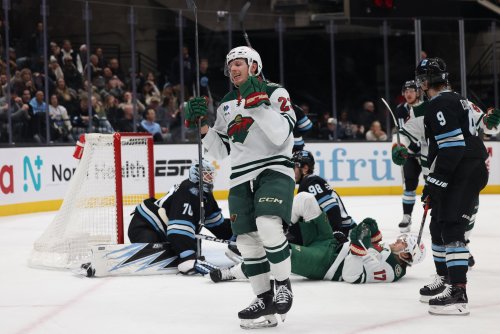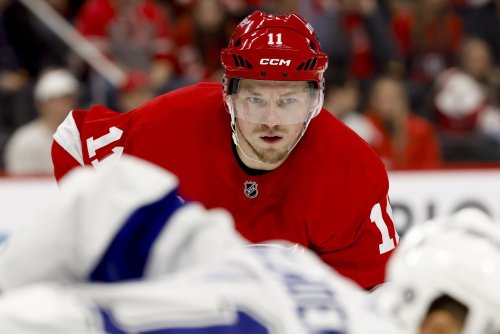
46 seconds into last night's game against the Nashville Predators, Shea Weber found the puck mid-stride, neglected his typical cannon-shot, and sent a puck through the chaos of the low slot and toward Devan Dubnyk. Through the mess of sticks, skates, and bodies, Dubnyk could only respond to the shot, not handle it. In the end, Filip Forsberg did the same thing, responding to the rebound and putting it home to give the Predators a 1-goal lead early.
The Minnesota Wild have played from behind before, and as the period wore on, it looked like they might get their chances if they kept to their game and worked the puck like we have seen in the past. That was, at least, until a slew of penalties midway through the third took the Wild necessarily off that path and forced them to play desperate and from behind for the rest of the night.
Around 9 minutes into the first period, noted Hollywod actor James Neal streaked up the right side of the ice, picking up a poorly-handled puck on the Wild's blue line and forcing Jared Spurgeon to interfere with his progress to prevent a more serious threat to Dubnyk. Neal, whose blockbuster acting skills have earned league accolades in the form of repeated fines, as well as colorful reviews from Tim Peel, didn't have to dive this time. If you haven't seen Tim Peel's review of Neal's "I Saw a Stick Near Me So This Is the Part in the Game Where I Draw a Penalty 2: The Rise of Taj," it's worth a watch. Warning: Peel's language is...descriptive:
Nevertheless, Neal's act wasn't on display then, as Spurgeon played the Predators' leading goal-scorer responsibly away from the puck. It wasn't a particularly late hit, but Spurgeon lead into him more aggressively than you'd like to see if he were just finishing a check.
Spurgeon's interference put the Wild on the kill. A few moments into a steady PK, Ryan Carter remembered a funny story that he wanted to tell Spurgeon. Not knowing any other way to communicate his story through the penalty box' impenetrably-transparent plexi, he flipped the puck needlessly over the glass so he could sit down and spend some time with the Wild's young defenseman.
With 49 seconds of 5-on-3 action, Nashville made its best effort to score, but the Wild played a solid triangle and limited shots. They forced the Predators to make outside passes and did well to prevent their defensemen out of Dubnyk's way, avoiding the screen shot that is typical of Nashville's offense.
After killing the first penalty, the Wild enjoyed a full 22 seconds of play before suffering a third consecutive penalty and sending the Predators back to a two-man advantage. With Chris Porter's stick broken and the Wild fighting for the puck near the Wild bench, Porter raced over to grab a new stick. Justin Fontaine read this as a call for a line change and jumped over the boards, with Mike Yeo not recognizing the issue before it occurred and allowing the Wild to lose another two minutes of time.
Honestly I don't blame Fontaine for the penalty. Porter had played a complete shift before the faceoff preceding his penalty. If I'm sitting on that bench, watching Porter's energy dip as his PK time wears on, I read his stick breaking as the justification for him to finally get a switch. Unfortunately, Yeo didn't catch on to the potential confusion of Porter's move until far too late to avoid yet another 5-on-3 for the Predators.
While the Wild had successfully killed one 5-on-3, the second would prove too much for the Wild. Only a few short moments after taking a too many men penalty, the Wild let Nashville go up 2-0. The Predators took that advantage and ran with it for the rest of the game.
In the end, the impact of the long series of PK for the Wild was about more than just the goal it allowed. It was about how long the Wild spent reeling in their own zone, finding a desperate, defensive rhythm. That rhythm works well when killing penalties, but in the end, that style of play only delays goals and does little to create them. To that end, the real impact of the penalties was in how it knocked the Wild out of their system. Without that system working, the Wild couldn't do what they've done so well all season: regain their composure and get back in games.
Think you could write a story like this? Hockey Wilderness wants you to develop your voice, find an audience, and we'll pay you to do it. Just fill out this form.








Recommended Comments
There are no comments to display.
Join the conversation
You can post now and register later. If you have an account, sign in now to post with your account.
Note: Your post will require moderator approval before it will be visible.